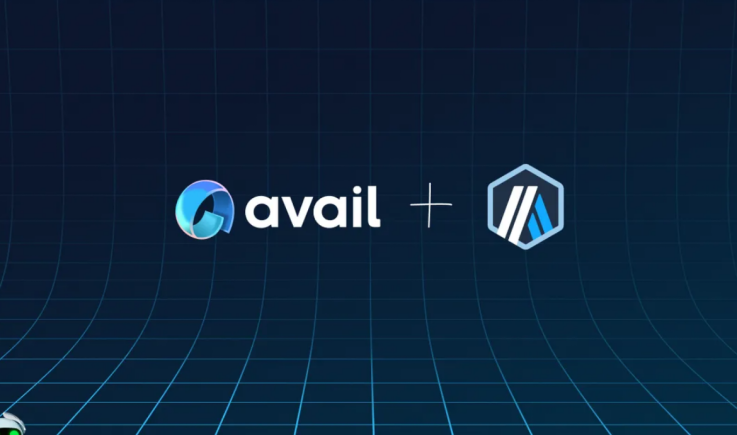
As blockchain technology continues to evolve, developers are constantly looking for more efficient and secure data availability (DA) solutions. The combination of Arbitrum Orbit Chains and Avail DA provides developers with a powerful tool that allows them to quickly create decentralized blockchain applications and enjoy rich feature integration. This article will take a deep dive into the advantages of this integration and how it is implemented.
What is Arbitrum Orbit Chains?
Arbitrum Orbit Chains is a blockchain solution built on the Arbitrum Nitro rollup stack. The Arbitrum Nitro stack has been battle-tested on Arbitrum One with hundreds of applications and millions of users, proving its efficiency and stability. Orbit Chains provides developers with the tools to build their own blockchain applications using the Arbitrum Nitro stack, allowing them to launch a decentralized blockchain in minutes.
Developers can use Orbit Chains to build dedicated applications or general-purpose blockchains, customizing privacy, permissions, fee tokens, governance, and other features. This provides developers with a blank canvas to explore custom web3 applications. For developers who are not familiar with native web3 programming languages such as Solidity, Arbitrum Stylus will be a great help. Arbitrum Stylus allows smart contracts to be written in programming languages that compile to WASM, initially supporting Rust, C, C++, etc., and more languages will be supported in the future.
What is Avail DA?
Avail DA is a foundational data availability layer and the first step towards a unified web3. It implements the same technology marked in the Ethereum Danksharding roadmap. It is a data availability layer based on validity proof, optimized for protecting blockchains and providing mathematically verifiable data availability guarantees to all users. Avail's blocks provide the raw block space required by other blockchains such as Arbitrum Orbit Chains. Avail's modular blockchain prioritizes decentralization and adopts a nominated proof-of-stake design. Using the Polkadot SDK, Avail will be able to support up to 1,000 external validators. Transaction data is published on Avail's blocks by other blockchains and verified by the Avail network (but not executed, as this is the responsibility of the execution layer). Avail originated from Polygon in 2020 and became an independent entity in 2023. The team is led by Anurag Arjun, co-founder of Polygon, and Prabal Banerjee, former head of Polygon research, and is committed to providing industry-leading data availability solutions.
Arbitrum Orbit Chains Integration with Avail DA
Developers have begun to leverage Arbitrum's Nitro rollup stack, and hundreds of applications and millions of users have verified its reliability on Arbitrum One. Now, Orbit developers can directly integrate Avail DA to quickly launch decentralized blockchains. This allows developers to focus on adding features and acquiring users instead of setting up and optimizing infrastructure.
Advantages of Integration
Efficiency: By integrating Avail DA, Orbit Chains can obtain data availability guarantees based on proof of validity. This means that the data on the blockchain will be more secure and reliable.
Low cost: Avail DA's modular design and optimized block space usage greatly reduce the cost of running the blockchain.
Scalability: Avail DA supports up to 1,000 external validators, ensuring its high scalability and the ability to support more applications and users.
Flexibility: Developers can customize the privacy, permissions, fee tokens, and governance features of the blockchain according to their needs, providing great flexibility.
Compatibility: Arbitrum Stylus support allows developers to write smart contracts in multiple programming languages, lowering the development threshold.
Integration steps
Preparation: Make sure you are familiar with the basic concepts and functions of the Arbitrum Nitro stack and Avail DA.
Configure the environment: Configure the development environment according to the official documentation, including installing the necessary tools and dependencies.
Create Orbit Chain: Use the tools provided by Arbitrum to create a new Orbit Chain and configure the relevant parameters.
Integrate Avail DA: Integrate Avail DA into Orbit Chain according to the guidance of the official documentation to ensure the correct configuration of the data availability layer.
Test and deploy: Test the newly created blockchain in the local environment to ensure that its functions and performance meet expectations. After the test passes, deploy it to the production environment.
Data Availability and Arbitrum AnyTrust Protocol
Arbitrum Nova (L2) and L3 Orbit AnyTrust protocols also provide data availability solutions, but there are some differences compared to Avail DA. The AnyTrust protocol mainly relies on trust assumptions, while Avail DA provides mathematically verifiable data availability guarantees through validity proofs. Both have their own advantages and disadvantages in terms of security, cost, and scalability, and developers can choose the appropriate solution based on their specific needs.
Conclusion:The integration of Arbitrum Orbit Chains and Avail DA provides developers with a powerful, low-cost and scalable blockchain solution. By leveraging this integration, developers can quickly create decentralized blockchain applications and enjoy rich features and efficient data availability guarantees. As web3 technology continues to develop, this integration will provide strong support for the innovation and development of blockchain applications.
In the future, we look forward to seeing more developers take advantage of this integration to build more innovative blockchain applications and promote the progress and development of the entire industry.